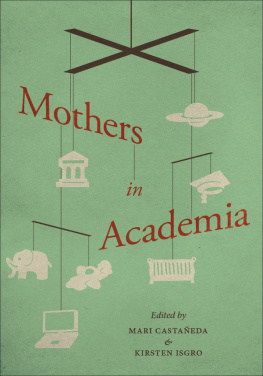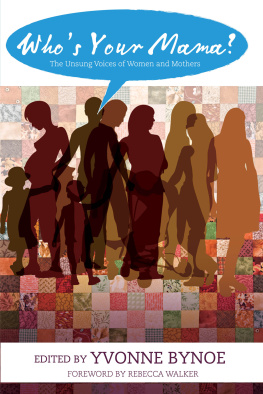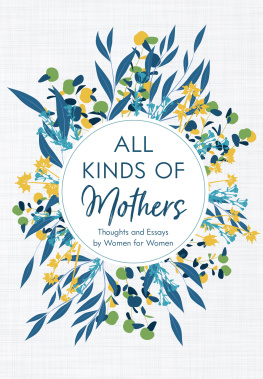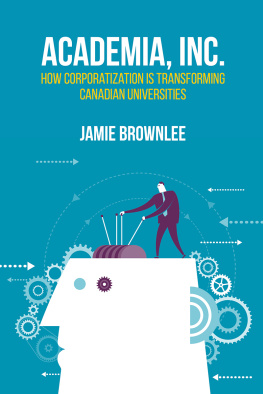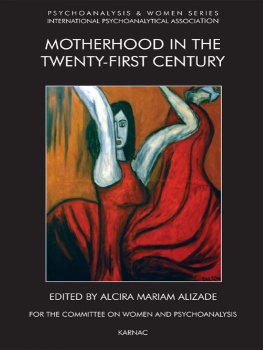MOTHERS IN ACADEMIA
Mothers in Academia
Edited by
Mari Castaeda and Kirsten Isgro
COLUMBIA UNIVERSITY PRESS NEW YORK
Columbia University Press
Publishers Since 1893
New York Chichester, West Sussex
cup.columbia.edu
Copyright 2013 Columbia University Press
All rights reserved
E-ISBN 978-0-231-53458-1
Library of Congress Cataloging-in-Publication Data
Mothers in academia / edited by Mari Castaeda and Kirsten Isgro.
p. cm.
Includes bibliographical references and index.
ISBN 978-0-231-16004-9 (cloth : alk. paper)ISBN 978-0-231-16005-6 (pbk. : alk. paper)ISBN 978-0-231-53458-1 (e-book)
1. Women in higher educationUnited States 2. Working mothersUnited States. 3. Work and familyUnited States. 4. Work-life balanceUnited States. I. Castaeda, Mari II. Isgro, Kirsten Lynn, 1965
LC1567.M68 2013
378.0082dc23
2012033019
A Columbia University Press E-book.
CUP would be pleased to hear about your reading experience with this e-book at .
Cover design and image: Martin Hinze
References to websites (URLs) were accurate at the time of writing. Neither the author nor Columbia University Press is responsible for URLs that may have expired or changed since the manuscript was prepared.
CONTENTS
Mari Castaeda and Kirsten Isgro
Michelle Kuhl, Michelle Mouton, Margaret Hostetler, Druscilla Scribner, Tracy Slagter, and Orlee Hauser
Larissa M. Mercado-Lpez
Wendy K. Wilde
Kim Powell
Virginia L. Lewis
Irene Mata
Vanessa Adel
Susana L. Gallardo
Maura I. Toro-Morn
Olivia Perlow
J. Estrella Torrez
Allia A. Matta
Gilda Baeza Ortego
Barbara A. W. Eversole, Darlene M. Hantzis, and Mandy A. Reid
Sandra L. French and Lisa Baker-Webster
Summer R. Cunningham
Erynn Masi de Casanova and Tamara Mose Brown
Colleen S. Conley and Devin C. Carey
Brenda K. Bushouse
Mari Castaeda and Kirsten Isgro

FIRST AND FOREMOST, we thank our immediate and extended families, without whose love and support this project and our lives as mothers in academia would not be possible. In addition, we thank the many feminist activists-scholars who have paved the way for us to produce scholarship, teach classes, and theorize motherhood in the flesh. Without the work of these womenmany of whom are cited in the forthcoming chaptersthe very concepts of mothering as a political, emotional, and personal act would be decidedly undertheorized. We are grateful to be part of a growing body of literature that has collectively generated and informed how we think and rethink our roles as parents, teachers, citizens, and intellectuals. We thank the amazing contributors to this volume for their thoughtful efforts to make their personal stories public as part of that legacy. We also thank the numerous other women who shared their stories as mothers in the academy, but who were not able to be part of this final publication due to limited space.
As with any edited anthology, there is a long list of people who made this book possible. We thank the peer reviewers, staff, and editors (Jennifer Perillo and Stephen Wesley) at Columbia University Press for their insightful and productive feedback; Annie Barva for the copyediting; the University of MassachusettsAmherst and Five Colleges community, especially the Department of Communication; the Department of Communication at the State University of New YorkPlattsburgh, especially Shakuntala Rao; Bohyeong Kim for research assistance; the National Association for Chicana and Chicano Studies and the Mujeres Activas en Letras y Cambios Social for accepting conference presentations on the topic; and a large network of extended family and friends who provided feedback and support throughout the process of editing the book.
In addition, Kirsten owes an enormous debt of gratitude to Mari for asking her to be part of this project at a time when such pursuits were crucial to her emotional and professional well-being. As a recent graduate and a new mom with sixteen-month-old twins, Kirsten had just found out that one of her daughters had a rare and fatal degenerative disease. Specific staff members, faculty, and students at the Weismann Center for Leadership at Mount Holyoke College were instrumental in helping her transition to parenthood within academia under extremely trying circumstances; thanks also to Dr. Lois Brown, Michelle Deal, Kim Parent, Janet Lansberry, Patricia Scigliano, Jennifer Curran, and many fabulous students from the Speaking, Arguing, and Writing Program. Lori Walters-Kramer gave a careful reading of previous versions of this manuscript, and Eric Ronnis offered thoughtful conversation about being a parent in academia. Much appreciation and love to the Elson-Patch family, who provided necessary respite and haven in some very beautiful places as we planned, wrote, and organized this book project. Kirsten has tremendous love for and gratitude to her partner, Tom Schicker, who for more than twenty years has been a source of companionship, encouragement, frustration, laughs, and unconditional support. Without his constant care and attention to their daughters, Sylvie and Uma, this book may never have come to fruition.
Mari thanks Kirsten for her compassionate engagement in the process of writing and editing this volume as well as for embodying a truly feminist demeanor of heartfelt collegiality and friendship. She also thanks Las Profes Online Writing Group (Mrida Ra, Lorena Garcia, Amanda Lewis, Martha Fuentes-Bautista, and Jillian Baez) for their encouragement throughout this life-changing endeavor, the UMass Post-ISHA womens group (especially Betsy Krause), and Susan Davis for planting the seed for this project long ago in her doctoral communication course at the University of CaliforniaSan Diego. Mari is also grateful to her family: her mother, Guadalupe Hernandez, who reared her and her four siblings (Veronica Jimnez, Andrs Castaeda, Margarita Luna, Joaqun Castaeda) under difficult circumstances but persevered with boundless love and a fierce commitment to continuing en la lucha, as well as her siblings, her in-laws (Chris Jimnez, Vanessa Castaeda, Orlando Luna), and her nieces and nephews (Devina and Alma Jimnez; Tessa, Sienna, and Andrs Castaeda; Emilio and Elias Luna), who provided her with an enormous amount of joy and reprieve from academic life. Last but not least, Mari is full of gratitude to and love for her husband, Joseph Krupczynski, a co-conspirator in life and in social justice struggles inside and outside academia, and her teenage son, Miguel Angel Paredes. Mijo, you went to grad school with me, moved three thousand miles so I could begin my professorial career, and have seen the joys and challenges of academic life. Your love has sustained me all these years, y sin t, este libro no sera posible. Te quiero mucho.

